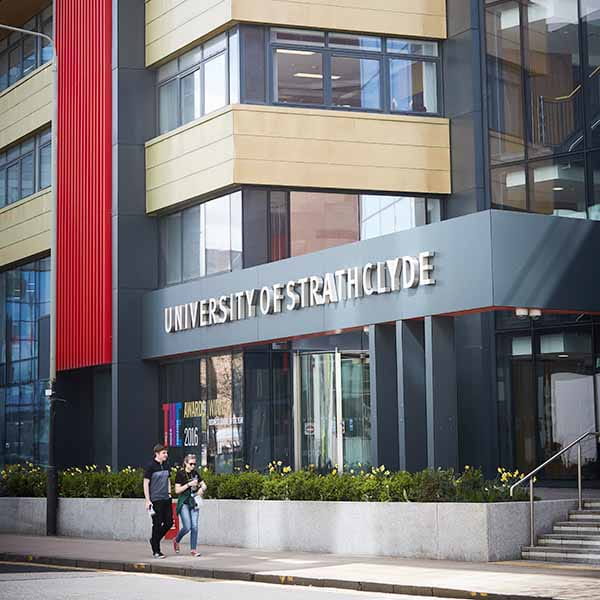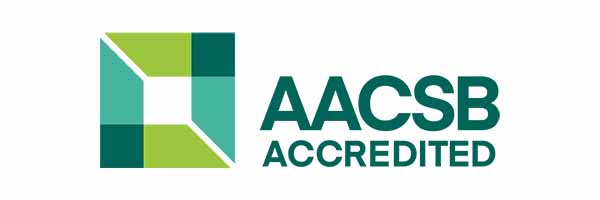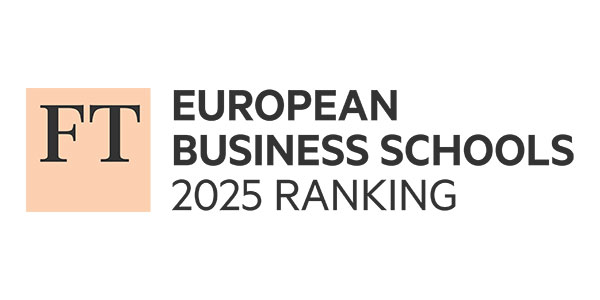MSc Business & Management (January)
ApplyKey facts
- Start date: January
- Study mode and duration: 12 months full-time
Study with us
Studying an MSc in Business & Management at Strathclyde Business School, you'll be learning at a pioneering internationally-renowned academic organisation that shapes and develops the business minds of tomorrow.
On the programme you'll experience a broad, yet specific exploration of general management, and develop skills in management theories and practices.
Consulting in Practice equips you with real-world consulting experience, enhancing your employability by applying academic theory to live client challenges.
The Place of Useful Learning
UK University of the Year
Daily Mail University of the Year Awards 2026
Scottish University of the Year
The Sunday Times' Good University Guide 2026
Why this course
The MSc Business & Management (MBM) draws together the best that Strathclyde Business School has to offer. By combining the School’s research expertise with its understanding of personal and professional development, the MBM provides a springboard for those looking to pursue careers in management, in business analysis, in consultancy, or even in starting a business.
You can be sure the course will develop the business acumen you need to operate effectively across different industries and operating environments.
The mission of the MBM instils in you the personal qualities and critical thinking skills that will see you emerge as a self-directed learner, capable of dealing with the ambiguous and complex task of managing.


The skills you acquire through the programme will help you stand out in the job market and enable you to operate effectively across a range of industries and environments.
You'll cover the major functional areas of organisations including finance, marketing, operations, and people management. You'll develop soft skills through focused professional development and hard skills in areas like finance, marketing and business operations.
You can also choose the Managing in Europe elective in Toulouse for an international experience.
Alumni have progressed to diverse roles at organisations including:
- Barclays Bank
- Ernst & Young
- PwC
- KPMG
- IBM
- GSK
- Transport for London
You'll utilise your learning and new skills throughout the programme, applying concepts and frameworks to interactive case studies, learning from guest speakers, work with real-life businesses and engaging in extra-curricular business activities. This ensures you will receive an education grounded in both academic excellence and real-world relevance.
You'll learn the critical thinking skills and a growth mindset to enable you to become a self-directed learner, capable of dealing with the complex task of managing.
You'll develop self-awareness and highly valued skills such as teamwork, emotional intelligence, self-responsibility, communication, leadership, logical reasoning, resilience and adaptability in the Professional Management Practice module.
You'll design and complete a personalised personal development plan to help evaluate and develop the skills and attributes needed to be an effective manager and leader through workshops and exercises. Through this process, you'll identify your unique strengths and the activities that enhance your career prospects, fostering lifelong learning and continuous professional development.
You'll learn responsible leadership, which is authentic, values-driven, inclusive, ethical, transformative, and responsive to a wide range of internal and external stakeholders.
You'll have access to Strathclyde Inspire, a University-wide, sector-leading initiative that supports and encourages all forms of entrepreneurship, providing opportunities to develop an entrepreneurial mindset in any organisation.
Some graduates have pursued their dream of becoming entrepreneurs and building their own successful businesses.
What you’ll study
The curriculum builds your understanding of organisations and the context in which they operate and helps you explore where you might fit within them. Classes fall within four focal areas:
- Understanding the business – through a sequence of classes you'll gain a managerial overview of the major functional areas of most organisations. You'll explore what they do and learn the language and techniques they employ.
- Developing the business – building on your growing understanding of organisations, this group of classes explores how businesses are responding to their contexts and analyse how they might evolve in the future.
- Professional development – in this area you will identify and develop a plan to enhance the key strengths and skills that will mark you out in your management career.
- Building a careers focus – as you move towards the next stage of your career, the elective classes and the final project/dissertation provide a wide range of options that allow you to customise your learning towards your career direction or development needs.
A programme focused on practice
The MBM provides a developmental process that builds your knowledge and confidence in understanding and undertaking hands-on analysis of management issues. Throughout the year you'll engage in:
- learning about practice – from the outset, the course focuses on the application of knowledge through case studies, group-based analysis, and guest speakers
- learning through practice – through working with real-life businesses you'll gain hands-on experience of the complexities involved in managing organisations
- practice as learning – by examining how you get things done in practice, you'll build confidence in identifying what you need to do to take your skills to the next level
A programme focused on careers
The MBM’s commitment to help you identify and enhance the knowledge and skills needed to succeed in your career begins on day one and extends beyond the end of the course. As a cohort member you'll:
- develop a personalised plan for learning and development, that identifies your strengths and the activities that will enhance your career prospects
- engage with resources that provide support and advice on career choices, and how best to exploit opportunities as you progress in your career
- join our active alumni group that complements the extensive Faculty and University alumni programme
A programme focused on the international
The MBM will underpin your ability to operate in organisational contexts across the globe. Both within, and outside the classroom, the programme’s international focus enriches the ability to understand and respond to local customs and business practices. Specifically, the international features as an:
- embedded part of the class experience where examples, case studies, and guest speakers explore how companies operate in different cultures across geographical regions
- explicit focus of the techniques and models you'll be exposed to in our classes on management practice
- lived-experience if you choose to take up the opportunity to study the ‘Managing in Europe’ elective in Toulouse
- Learning from each other is the very essence of the course, forming friendships that endure for years.
A programme focused on personal attainment
The MBM is a degree focussed on helping you translate your unique talents into the strengths that will help you realise your potential. Working with us you'll identify bespoke development activities that might draw from:
- the comprehensive programme of learning and skills enhancement activities available through the syllabus and across the University
- the lively programme of events offered by the career service, the business faculty and the wider University
- a spectrum of extracurricular activities and associations course members participate in, including; international assemblies, competitions and clubs and societies (students’ union)
- the opportunities for industrial engagement, volunteering and adventure that comes from being in the industrial capital of Scotland
Meet the students
MSc student Hattie tells us more about the course.
Triple-accredited business school
Strathclyde Business School
Strathclyde Business School was founded in 1948 and is a pioneering, internationally renowned academic organisation with a reputation for research excellence.
One of four faculties forming the University of Strathclyde, SBS is a triple-accredited business school (AACSB, EQUIS and AMBA) and was the first business school in Scotland to achieve this accolade in 2004.
The Business School is home to seven subject departments and a number of specialist centres, all of which collaborate to provide a dynamic, fully-rounded and varied programme of specialist and cross-disciplinary courses.
Strathclyde Inspire
At Strathclyde, we live and breathe entrepreneurship. The University of Strathclyde started life as a place of useful learning, an institution that wanted to make a difference through dong things innovatively, boldly and socially oriented; this founding mission has never been more relevant. Today, we continue to nurture generations of influencers, innovators and industry leaders, empowering our staff, students and alumni to embrace entrepreneurship, transforming their own lives and the lives of others.
Strathclyde Inspire supports and encourages entrepreneurship in all its forms, so whether you want to be more entrepreneurial in your approach to life, business and society, have an idea for a business, or are considering commercialising your research, we will support you at every stage of your journey.
Course content
The MBM’s curriculum is continuously reviewed in order to keep pace with the rapidly evolving business landscape. You may find there are changes from the current list of classes.
Understanding the business
Analytical Support for Decision Making
This class develops skills in the effective practice of business analysis through the application of tools and techniques and to develop an appreciation of the issues which may require careful management if the decisions made are to be based upon valid data and models.
Managerial Accounting
This class develops your ability to understand the nature and limitations of the information provided in the external, and internal, financial reports. It introduces some of the accounting techniques underlying business activity, and builds your awareness of the financial implications of strategic and operational decisions.
Managing People in Organisations
Business Operations
This class considers the key aspects of design, planning and control of operating systems in a global context. By examining the practice of leading organisations it will help you understand how organisations configure their operations and the challenges involved in managing them.
Finance & Financial Management
This class will introduce you to the principles of financial markets and institutions, corporate financial theory and financial decision making. It examines the core concepts and valuation models involved in pricing securities, the choices firms make over how to fund themselves and the techniques used to evaluate internal investment proposals.
Marketing Management
This class examines contemporary international practice, exploring the major concepts and techniques involved in the marketing planning process. It will help you analyse what companies are offering, how customers behave, and ultimately identify what they need to do next to deliver on their objectives.
Developing the business
Leadership for Change & Innovation
The central premise of this class is that while prudent management is essential, it is not sufficient to assure sustainable business success. Leadership in any sector involves using creativity and vision to navigate a unique path through problems and times of uncertainty.
This class draws together the latest theories and practices in order to develop your skills and understanding for effective leadership in the context of change. You'll also gain an understanding of the practices of leadership in innovative project teams.
Business Strategy
This class provides opportunities to explore, understand and apply the language of strategy and strategic management. By examining real-life organisations, you will develop your understanding of the forces within their contextual and transactional environments that influence their strategy, and by applying different strategic frameworks, develop the ability to critically analyse the strategic direction being adopted.
Consulting in Practice
As the final class in the degree program the Consulting in Practice class is aimed at developing effective and reflective practitioners/managers. This class provides students with the opportunity to deploy many aspects of their learning by engaging with a live issue provided by a client company. It commences with a review of key theories and tools that students have studied as part of their degree with consideration given on how to use these in this exercise. This is followed by analysis of material provided by the client which describes the issue to be addressed and the outcome expected by the client.
This then leads into a group activity which applies particular techniques for addressing aspects of the client’s issue. More detailed client input is provided at certain points in the process often through direct interface with the client. This allows students to gain a more in-depth understanding of the issue and to try out various solutions. Further analysis is carried out by the groups and the class concludes with students presenting their thinking to their client. The client presentations are then followed by a reflective session where the tutor, client and students are encouraged to explore the process of the class and develop the learning gained.
Managing Innovation
Innovation has become a core management capability for those organisations that want to succeed in today’s tough business climate.
The class focuses on the management of technological innovation in contemporary business firms with a strong emphasis on the key role of people and organisations in creating, developing and transferring new knowledge, products, processes and services. By drawing from the state of the art innovation literature as well as a wealth of original, in-depth, real world case study materials, the course analyses the opportunities and challenges related to creating, sustaining and managing innovation in the 21st century.
Professional development
Professional Management Practice
This class develops your awareness and capabilities as a manager using a Personal Development Plan (PDP) process to help you critically evaluate the skills and attributes needed to be effective. Over the course of the year, workshops and exercises will help you identify and move towards fulfilling your potential.
Building a career focus
Project
The project provides the opportunity to apply what you have learned to a practical situation. Working under the supervision of an academic, you'll spend time working individually, or in a group, on a topic in the area of Business and Management. You'll learn the skills needed to develop a proposal and conduct an effective enquiry into your topic area, producing a report that is both informed and practical.
The projects are diverse, with a vast array of industries and disciplines being undertaken.
Choose two (electives are subject to change):
New Venture Creation
In New Venture Creation, students will learn to develop and validate winning business models. Students will cover a broad range of topics that critically examine various approaches to establishing and operating a venture, supported by frequent guest lectures from successful entrepreneurs.
Project Management
This module aims to provide students with skills and knowledge relating to the use of practices in Project Management with particular respect to the project triple constraint: time, cost and quality.
Brand Management & Strategy
The mission of this elective is to provide a solid understanding and application in the strategies of global brand management. Key skills and theories of brand management will be presented and discussed in order to equip the learner to operate effectively in a global brand management environment. Students will gain a clear appreciation of the role of brand strategy within the corporation’s operating plan. This will entail consideration of environmental factors causing changes to the structure and composition of the brand portfolio as well as discussion of conceptual issues surrounding the strategic roles of brand management.
Service Operations Simulation
This class provides MSc students with insights into ‘Service’ Operations Management, an area of study that is increasingly relevant to our graduates as compared with traditional/manufacturing operations management. Emerging concepts such as ‘services science’ emphasize the need to understand operations management within the service sector as a whole, while providing specific examples from different service sectors to illustrate the wide range of challenges within service industries. Aiming to be as practically useful as possible, the class provides both conceptual and technical perspectives on services. The technical perspective utilises discrete event simulation (DES) as a powerful tool to analyse service operations and facilitate decision making for service operations managers.
Family Enterprise
In this class, participants explore aspects of governance, work ethics and succession as well as family dynamics, conflict on gender issues. The class gives students insights into effective and professional work with and within family firms.
Managing in Europe (Toulouse)
The aim of this module is to:
- sensitize students to the basic skills involved in managing people in Europe with a focus on cultural and knowledge issues as well as managing cross-cultural differences
- understand the European context in terms of HRM and employment relations and manage effectively in this context
- be able to adapt to different cultural environments and to manage effectively in an intercultural European context as well as a global context
Commercial Management in Projects
The module starts by looking at the main types of business vehicle that are used in the modern commercial environment. It goes on to explore how commercial contracts are formed and how the concept of agency can affect contracts. An exploration of common contractual problems follows.
The module then turns to examine practical skills: goal setting, time management and risk management (all of which are set in a theoretical context for participants). Finally, participants learn about the theory of negotiation and have the opportunity to bring all of their theoretical legal knowledge and practical skills to bear during a negotiation simulation.
Digital Transformation
The mega-trend of digital transformation is first examined to familiarise the student with the environmental drivers – social and technological – behind the rise of digital transformation.
Key technological advances powering digital transformation as a global phenomenon are introduced, including:
- elastic cloud computing
- big data & analytics
- the internet of things (IoT)
- artificial intelligence (AI)
- machine learning
Social implications for work and life are examined, and examples explored as to how digital transformation is already reshaping nations, sectors, organisations and individuals.
Chat to a student ambassador
Want to know more about what it’s like to be a Strathclyde Business School student at the University of Strathclyde? A selection of our current students are here to help!
Our Unibuddy ambassadors can answer all the questions you may have about their course experiences and studying at Strathclyde, along with offering insight into life in Glasgow and Scotland.
Learning & teaching
Classes on the course differ significantly from traditional formal lectures. Academic staff maximise opportunities for class discussion and debate about how organisations are tackling real-life business issues and whether their approaches are appropriate in other contexts. You'll often be given individual or group-based research tasks to be fed back in class. This emphasis upon practical skills gives you a greater understanding of what is happening in a wide range of organisational contexts. It also helps you to be able to formulate relevant, practical, responses to the complex issues.
Our teaching helps you develop the high level of personal and interpersonal skills that employers are looking for. You'll find that, from your very first day, we'll be there helping you to find effective ways to manage yourself while getting the best from those you're working with.
Assessment
The course is assessed through written assignments, group and individual projects or reports, class tests and presentations. Class tests and one case study assessment are taken under exam conditions.
Entry requirements
| Academic requirements | Minimum second-class Honours degree, or overseas equivalent (view the entry requirements for your country) in a non-business or management-related subject. The MSc Business and Management is primarily designed for those with non-business-related degrees and is not suitable for those with general business degrees such as BA/BSc Business Studies or Bachelors in Commerce. |
|---|---|
| English language requirements | For students whose first language is not English, you must have a minimum of 6.5 IELTS score with no individual score lower than 5.5. Get more information about the English language requirements for studying at Strathclyde. |
There’s no requirement for prior work experience, although many students on the course have worked for a couple of years. The course is not suitable for those who have extensive experience.
As the course involves work on word processing and spreadsheet packages, a reasonable level of competence in both is recommended.
Pre-Masters preparation course
The Pre-Masters Programme is a preparation course held at the University of Strathclyde International Study Centre, for international students (non-UK/Ireland) who do not meet the academic entry requirements for a Masters degree at University of Strathclyde.
Upon successful completion, you'll be able to progress to this degree course at the University of Strathclyde.
International students
We've a thriving international community with students coming here to study from over 140 countries across the world. Find out all you need to know about studying in Glasgow at Strathclyde and hear from students about their experiences.

Fees & funding
All fees quoted are for full-time courses and per academic year unless stated otherwise.
Fees may be subject to updates to maintain accuracy. Tuition fees will be notified in your offer letter.
All fees are in £ sterling, unless otherwise stated, and may be subject to revision.
Annual revision of fees
Students on programmes of study of more than one year (or studying standalone modules) should be aware that the majority of fees will increase annually.
The University will take a range of factors into account, including, but not limited to, UK inflation, changes in delivery costs and changes in Scottish and/or UK Government funding. Changes in fees will be published on the University website in October each year for the following year of study and any annual increase will be capped at a maximum of 10% per year. This cap will apply to fees from 2026/27 onwards, which will not increase by more than 10% from the previous year for continuing students.
| Scotland | £16,800 |
|---|---|
| England, Wales & Northern Ireland | £16,800 |
| Republic of Ireland |
If you are an Irish citizen and have been ordinary resident in the Republic of Ireland for the three years prior to the relevant date, and will be coming to Scotland for Educational purposes only, you will meet the criteria of England, Wales & Northern Ireland fee status. For more information and advice on tuition fee status, you can visit the UKCISA - International student advice and guidance - Scotland: fee status webpage. Find out more about the University of Strathclyde's fee assessments process. |
| International | £31,100 |
| Available scholarships | Take a look at our Business School scholarships. |
| Additional costs | International students may have associated visa and immigration costs. Please see student visa guidance for more information. |
Please note: the fees shown are annual and may be subject to an increase each year. Find out more about fees.
How can I fund my course?
Scottish postgraduate students
Scottish postgraduate students may be able to apply for support from the Student Awards Agency Scotland (SAAS). The support is in the form of a tuition fee loan and for eligible students, a living cost loan. Find out more about the support and how to apply.
Don’t forget to check our scholarship search for more help with fees and funding.
Students coming from England
Students ordinarily resident in England may be to apply for postgraduate support from Student Finance England. The support is a loan of up to £10,280 which can be used for both tuition fees and living costs. Find out more about the support and how to apply.
Don’t forget to check our scholarship search for more help with fees and funding.
Students coming from Wales
Students ordinarily resident in Wales may be to apply for postgraduate support from Student Finance Wales. The support is a loan of up to £10,280 which can be used for both tuition fees and living costs. Find out more about the support and how to apply.
Don’t forget to check our scholarship search for more help with fees and funding.
Students coming from Northern Ireland
Postgraduate students who are ordinarily resident in Northern Ireland may be able to apply for support from Student Finance Northern Ireland. The support is a tuition fee loan of up to £5,500. Find out more about the support and how to apply.
Don’t forget to check our scholarship search for more help with fees and funding.
International students
We've a large range of scholarships available to help you fund your studies. Check our scholarship search for more help with fees and funding.
Glasgow is Scotland's biggest & most cosmopolitan city
Our campus is based right in the very heart of Glasgow. We're in the city centre, next to the Merchant City, both of which are great locations for sightseeing, shopping and socialising alongside your studies.
Careers
The degree opens up a range of exciting career possibilities. For many of our graduates, it's the combination of their first degree, or work experience, and the MBM that distinguishes them from the competition. Many have taken up an opportunity within their family’s business, developing the business to take advantage of the opportunities presented by today’s environment. Others are pursuing their dream of becoming an entrepreneur and building their own successful business.
Where are they now?
Typical alumni job titles include:
- Founder/Owner
- Vice President/Director
- Consultant
- Business Analyst/Advisor
- Manager – Project/Risk/Finance/BI/Operations
Recent graduates have found employment within national and multi-national organisations including roles in the following sectors:
- Finance – Barclays Bank, Cathay United Bank, Lloyds Banking Group, Clydesdale & Yorkshire Bank, Consulting - Ernst & Young, PwC, KPMG
- Manufacturing – Pine Chemical Group, Rajeev Metal Industries
- Business support – Transport for London, GSK, Zapplon
- IT services – IBM, Italy-China E-commerce Sales Center, Toyota Tsusho Network Integration
- Start-ups – Scorace, Nuvven, To Be Healthy Foods
Meet our students

Frederic Emig
The spirit and the professionalism, which all staff members and students share, is very special. All people are motivating and your classmates have high goals and give their best to achieve them. You get inspired here.

Nora Roche
Throughout the year, the classes and coordinating projects are highly practical and will prepare you with tools and knowledge that will guide you in the workplace. The coursework truly embodies Strathclyde’s motto, “the place of useful learning”.

Emma Goldie
The carefully curated modules very much lived up to the University’s motto ‘The place of useful learning’. I especially liked the fact that a number of those modules were also classes which form part of the prestigious MBA qualification

Rebecca O’Toole
The MSc in Business & Management has exceeded my expectations so far – the broad scope of the course keeps it dynamic whilst the variety of teaching methods keep things interesting.

Matteo Fois
There is no doubt that the MSc Business & Management is more than just a great element on your CV, it is the game-changer of your entire career.

Mrunalini Deshmukh
The course is well-curated and gave me an overall understanding of the business management concepts with a mix of academic and industry projects. I developed my business management fundamentals in the course and also enhanced my critical analysis, emotional intelligence, innovation and problem-solving skills.
Apply
For information and guidance on the application process, take a look at our How to Apply web page.
Contact us
SBS Postgraduate Admissions
Telephone: +44 (0)141 553 6105 / +44 (0)141 553 6116
Email: sbs.admissions@strath.ac.uk
Strathclyde Business School, University of Strathclyde
199 Cathedral Street
Glasgow
G4 0QU
Have you considered?
We've a range of postgraduate taught and Masters courses similar to this one which may also be of interest.

Christian Recinos Valencia
One of the most impactful elements for me was the Professional Management Practice module, especially the creation of the Personal Development Plan (PDP). This assignment pushed me out of my comfort zone, encouraging me to join societies, apply for part-time jobs, and take daily actions toward self-improvement.





